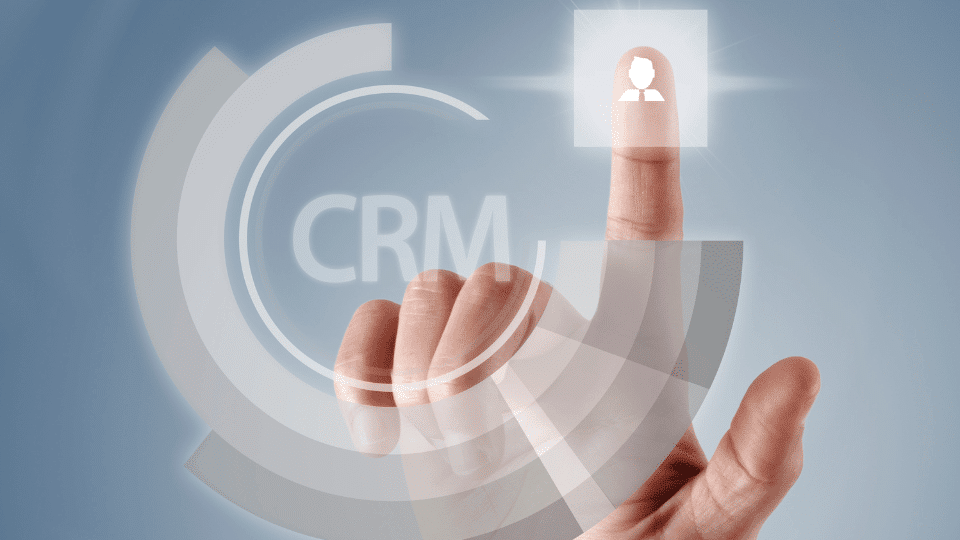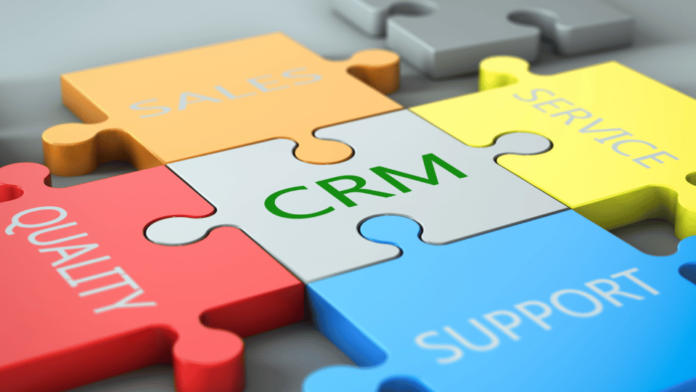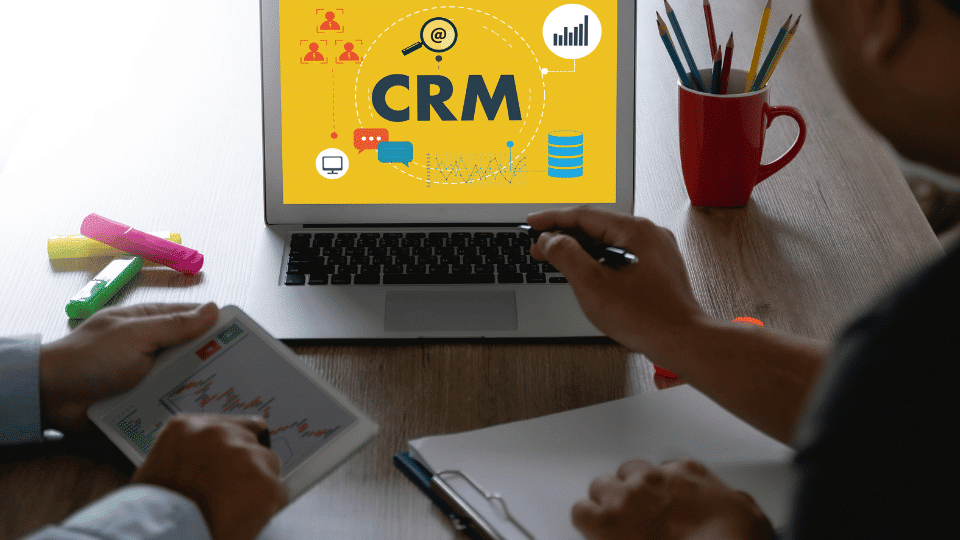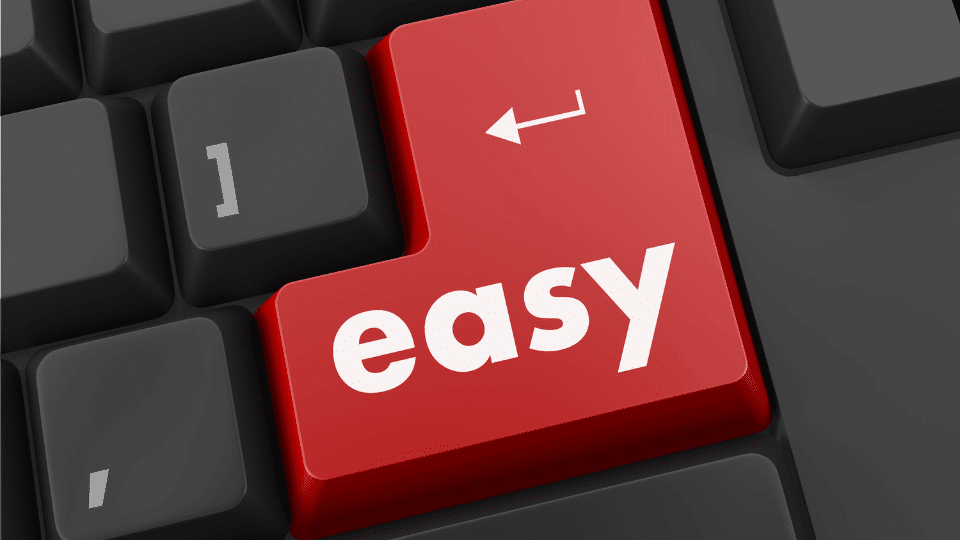The modern consumer expects more than just a product or service; they crave personalized experiences and meaningful interactions with the brands they engage with. In this era of heightened customer expectations, businesses need to harness advanced technologies to build lasting relationships with their customers. This is where a CRM ticket system steps in as a game-changer.
By implementing a CRM ticketing system, businesses can unlock opportunities to connect, engage, and satisfy their customers in ways that leave a lasting impact. Therefore, join us as we explore the realm of CRM ticketing systems and discover the keys to fostering meaningful customer interactions.
Table of Content:
Table of Content
What is a CRM Ticket System?
A CRM software ticketing system is a tool designed to manage and streamline customer interactions and support processes within an organization. It also combines the functionalities of a customer relationship management (CRM) system with a ticketing system. Creating a centralized platform for handling customer inquiries, requests, and issues.
At its core, a CRM ticketing system serves as a repository for customer-related data and communication history. When a customer reaches out to a company through various channels such as email, phone, chat, or social media. Their interaction is converted into a ticket within the system. Additionally, each ticket represents a unique customer inquiry or issue, allowing support agents or customer service representatives to track and manage them effectively.
Once a ticket is created, it is assigned a unique identifier, categorized based on the type of inquiry or issue, and assigned to an appropriate team member for resolution. Moreover, the CRM ticketing system facilitates collaboration and communication between different departments or individuals involved in resolving the ticket. It also allows for the tracking of ticket progress, ensuring that customer inquiries are addressed promptly and efficiently.
Why do You Need CRM Ticket System?

A CRM ticket system is crucial for businesses due to several compelling reasons. Firstly, it enables efficient and organized customer support by providing a centralized platform to track and manage customer inquiries, issues, and requests. This ensures that no customer concern goes unnoticed, leading to improved satisfaction.
Secondly, it facilitates seamless collaboration and communication among support team members, ensuring effective delegation of tasks and faster resolution of customer issues. Moreover, a CRM ticketing system helps improve response times by prioritizing and categorizing tickets based on urgency, ensuring prompt attention to critical inquiries.
Additionally, it centralizes customer data, offering valuable insights into their preferences and history for personalized interactions. As businesses scale, a CRM ticketing system accommodates higher volumes of customer inquiries and provides analytics to measure and enhance support performance.
Lastly, integration with other systems ensures seamless data flow and consistent customer information. By leveraging a CRM ticketing system, businesses can effectively manage customer interactions, deliver exceptional support, and foster strong, lasting customer relationships.
Type of Ticketing Systems
There are different types of ticketing systems designed to cater to various needs and departments within an organization. Let’s explore three common types: customer service desk ticketing systems, IT help desk ticketing systems for employees and ticketing systems for software developers.
Customer service desk
A customer service desk ticketing system is specifically tailored to handle customer inquiries, requests, and issues. It also acts as a centralized platform where customer interactions are logged, tracked, and managed. This type of ticketing system allows customer service representatives to efficiently handle incoming queries, assign tickets to appropriate agents or teams, and also monitor the progress of each customer interaction.
IT help desk for employees
An IT help desk ticketing system is designed to support employees within an organization who require technical assistance or have IT-related issues The system helps IT teams manage and prioritize these tickets, ensuring timely resolution of issues. It may also include features like ticket categorization, ticket assignment to specific IT personnel or teams, tracking of ticket status, and communication between employees and IT support staff.
Ticketing system for software developers
A ticketing system for software developers is commonly used in software development teams to track and manage tasks, bugs, and feature requests. It also provides a structured way to capture and prioritize development-related issues and enhancements. Moreover, this type of ticketing system typically integrates with software development tools like version control systems and project management platforms.
Benefits of Using CRM Ticket System
A CRM ticketing system brings numerous benefits to businesses, revolutionizing how customer interactions are managed. And also fostering a more efficient and effective support ecosystem. Let’s delve deeper into each of these benefits to understand how they contribute to streamlining operations, enhancing customer satisfaction, and driving business success.
Automate tasks
A CRM ticket system allows for the automation of various tasks, saving time and also improving efficiency. Automated processes can be triggered when a ticket is created, such as ticket assignment, based on routing tickets to the appropriate teams. Additionally, routine tasks like sending confirmation emails or follow-up messages can be automated, reducing manual effort and ensuring consistent and timely communication with customers.
Centralized system
Implementing a CRM ticket system provides a centralized platform to manage and track customer inquiries, issues, and requests. Support teams can easily access and reference relevant information because they log and store all customer interactions in a single location. Additionally, this centralized system eliminates the need for searching through multiple communication channels or spreadsheets, improving response times and overall efficiency.
Prioritizing customer issues
With a CRM ticket system, businesses can prioritize customer issues based on urgency or importance, and by integrating an AI chatbot, they can automate ticket categorization and triage, ensuring that critical concerns are addressed even more efficiently. Support teams can promptly identify and address high-priority tickets, ensuring that critical customer concerns receive immediate attention. Moreover, this prioritization helps improve customer satisfaction by reducing response times and demonstrating a commitment to resolving urgent issues in a timely manner.
Increases productivity
By streamlining workflows and automating tasks, a CRM ticket system boosts productivity within the customer support team. Support agents can spend less time on administrative tasks and manual ticket assignments. Allowing them to focus more on providing personalized and efficient customer service. Additionally, with a centralized system and easy access to customer information, agents can quickly address inquiries, resulting in faster resolutions and higher customer satisfaction.
How HashMicro CRM Can Help Your Ticketing System?
HashMicro CRM offers a comprehensive solution that can significantly enhance a ticketing system by providing various features and functionalities. Let’s explore how HashMicro CRM can help optimize a ticketing system through email marketing management, call logging, easy configuration, and also system integration.
Manage email marketing
HashMicro CRM integrates email marketing capabilities into the ticketing system, allowing businesses to effectively communicate and engage with their customers. With this feature, businesses can also send targeted and personalized email campaigns directly from the CRM platform. Moreover, this seamless integration eliminates the need for separate email marketing tools, streamlining the process and ensuring consistent customer communication.
Call logging
HashMicro CRM enables call logging, allowing businesses to capture and store important information from customer phone calls. This feature also helps support agents to log relevant details during conversations, ensuring accurate and complete records of customer interactions. Moreover, proper documentation through call logging ensures that support teams can easily reference and access all customer communication.
Easy configuration
HashMicro CRM offers easy configuration options, empowering businesses to customize and tailor the ticketing system according to their needs. Administrators can easily configure ticket categories, tags, priorities, and also workflows to align with their unique support processes. This flexibility ensures that the ticketing system can adapt to the organization’s requirements and deliver optimal performance.
HashMicro system integration
HashMicro CRM provides seamless integration capabilities, allowing businesses to connect the ticketing system with other essential systems and tools. Integration with existing systems such as accounting, purchasing, and inventory systems.
Conclusion
In conclusion, implementing a CRM ticketing system can bring significant advantages to businesses. Including streamlined customer support processes, enhanced communication, and improved productivity. HashMicro CRM offers a comprehensive solution that addresses these needs and goes beyond by providing additional features. Such as email marketing management, call logging, easy configuration, and system integration.
By utilizing HashMicro CRM, businesses can efficiently manage their email marketing campaigns within the ticketing system. Ensuring consistent and targeted communication with customers. The call logging feature enables support agents to capture and store important details from customer phone calls, ensuring accurate records and facilitating better follow-up. Try a free demo today!




























































